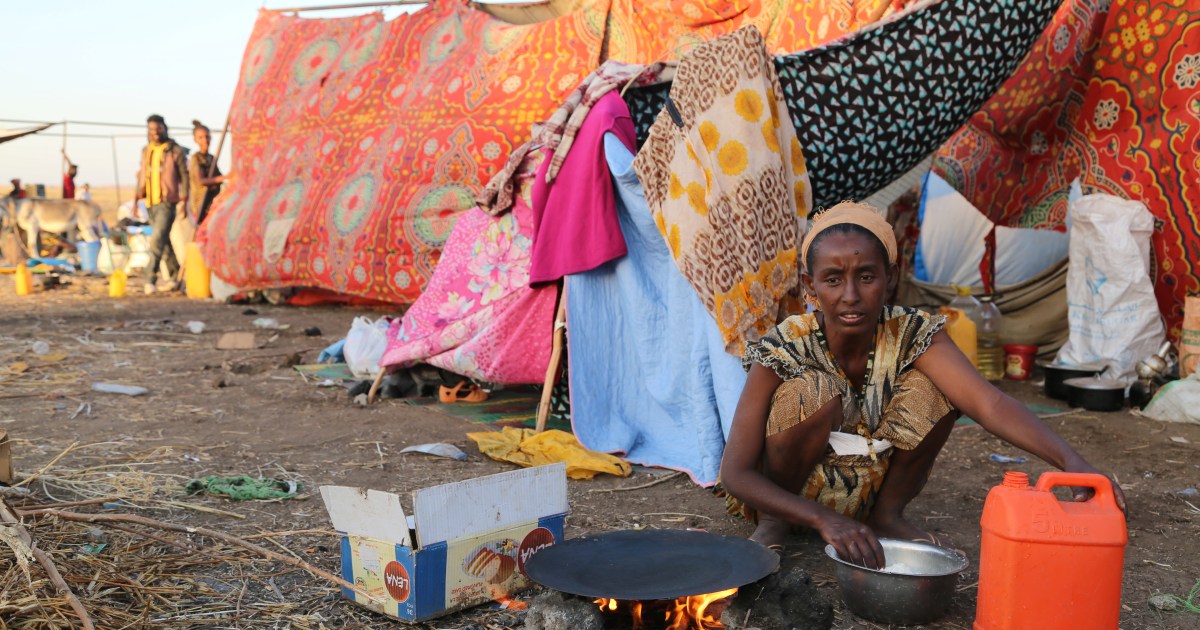Armed confrontations continue between the Ethiopian federal army and the "Tigray People's Liberation Front" in the border region with Sudan, while the United Nations has warned of a stifling humanitarian crisis looming in the region.
The rulers of the Ethiopian province of Tigray refused to surrender to the federal government forces today, Wednesday, and said they were winning the war that sparked ethnic differences in the country and destabilized the Horn of Africa.
"Tigray is now a hell for its enemies," they said in a statement about the two-week attack on them. "The Tigrayans will never kneel."
On the other hand, the government of Prime Minister Abiy Ahmed declared great victories, and added that its forces are advancing towards Mikkeli (the provincial capital), and will announce victory soon.
The conflict has killed hundreds - and possibly thousands - of both sides, has prompted about 30,000 to flee to Sudan, and raised doubts about Abe's reputation;
Africa’s youngest leader, 2019 Nobel Peace Prize winner, for striking a peace deal with Eritrea.
Abe ordered air strikes and sent soldiers to Tigray on November 4, after he accused the Tigray People's Liberation Front, the well-armed ruling party in the region, of rebelling and attacking a government base.
The Front says that Abe - who was a former military commander in the region and a political partner - is persecuting their ethnic group, and dismissing officials who belong to it from prominent security and government positions since he took power in 2018.
Tigrayans who fled to Sudan told Reuters that militias from the neighboring Amhara region attacked them on ethnic grounds, and that government air strikes were killing civilians.
There were also reports of people from the region losing their jobs and facing discrimination in various parts of Ethiopia, and the Tigrayans' rulers used the term "genocide".
But Abe’s government has repeatedly denied any hidden ethnic intentions, saying all it is doing is to restore the rule of law, prosecute criminals and ensure the country's unity.
The government emergency committee, formed to deal with the crisis, said in a statement today, Wednesday, "The federal government ... condemns in the strongest terms the wrong characterization of this process as having any ethnic bias or any other bias."
UN warnings
For its part, the United Nations called on Ethiopia to reopen roads to the Tigray region (in the north), to provide relief to those affected by the armed conflict, warning that supplies will soon run out, putting millions of people at risk of disease and food insecurity, amid the continuing fierce fighting.
"Our humanitarian colleagues have informed us that they and their partners continue to demand the protection of civilians, respect for international humanitarian law, and to ensure that aid continues to reach areas affected by the conflict," said Stephane Dujarric, spokesman for the UN Secretary-General.
Dujarric added - during a press conference - that the roads leading to Tigray are closed, and there are warnings that supplies will soon run out, putting millions at risk of food insecurity and disease.
While Mark Lowcock, Under-Secretary-General of the United Nations for Humanitarian Affairs - in a statement Tuesday - said that "even before the current hostilities, about a million people in Tigray, and millions of others living near the borders of the region, were in need of humanitarian assistance."
He added that the current situation increases the needs and vulnerabilities of the population, and disrupts the work of the United Nations and other humanitarian organizations.
The Tigray People's Liberation Front accuses the federal authorities of marginalizing them and broke away from the ruling coalition.
The Front challenged Federal President Abiy Ahmed by holding regional elections last September, and the government considered them "illegal", in light of a federal decision to postpone the elections due to the Corona pandemic.

